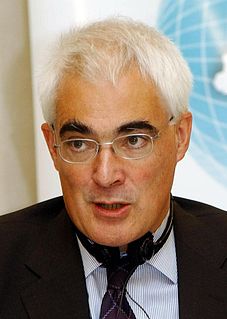A Quote by Phil Harding
The 20th Century approach to economics, resource depletion and over-consumption means we boom and bust until we bust more than we boom; that is precisely what is happening. In a low growth economy, the true meaning of resource efficiency in business and in everything we do is essential
Related Quotes
We create these boom-bust cycles by manipulating the money supply and the interest rates and directing it where it went in. And that is what happened with housing: pushed into housing combination of easy money plus all the regulations, and we created this boom-bust cycle, and corruption, because corruption goes with it, because you don't have the same discipline. So we've got to stop all that.
Boom and bust cycles are very difficult for businesses because you're hiring a bunch because you're planning for the future. And if the future is going to be very big, you need to hire people, or suddenly you go to boom to bust, then all of a sudden, you're kind of battening down the hatches and trying to sail, you know, through the storm, it's a different thing. So part of it is making good decisions about, well, how long is a boom cycle going to be, you know, don't plan on it going forever.
The UK still has time to accelerate the take-up of renewable energy and put the nation on a path towards clean energy that is cheaper, stable and more sustainable. We have a stark choice: We can stay stuck in the last century's boom and bust approach to our economy in the way we consume energy and resources, or create a sustainable, stable and renewable energy infrastructure with the long term environmental and employment benefits that ensue






























